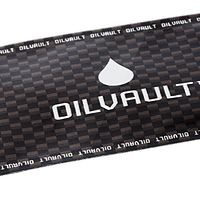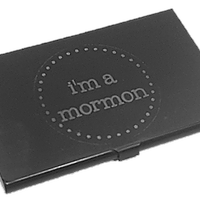“Is any among you sick? Let him call for the elders of the church; and let them pray over him, anointing him with oil in the name of the Lord; and the prayer of faith shall save him that is sick, and the Lord shall raise him up” (Jas. 5:14, 15).
This is one of the clearest scriptures in the bible that implores us to anoint with oil and pray with faith to heal the sick. This scripture also comes with a clear promise that the Lord shall raise up those who are blessed with oil. Yet, scholars within the Christian world still have questions about the relationship between the blessing of the sick and the use of oil.
There is little question that there are still sick among us. And, there is little question whether there should be elders today (referred to in different churches as priests, pastors, bishops, etc). There is a question among scholars whether elders, in connection with their prayers, should be anointing the sick with oil?
The first question scholars in the Christian world have regarding “anointing with oil” is that James 5:14 is a very brief scripture, meaning it does not specifically state the procedure for performing such a blessing. The second question scholars have within the Christian world is whether anointing with oil is universally applicable or perpetually obligatory.
What Does “Anointing With Oil” Mean?
Scholars within different Christian churches are sharply divided as to the meaning of “anoint with oil.” Here are the top views of Christian scholars for the meaning of “anoint with oil”:
Daily Hygiene
Some suggest that oil was employed as a daily item of toiletry in ancient times (much like cosmetics are used today). In periods of sickness, or fasting, this casual use of oil was suspended (see Ruth 3:3; 2 Samuel 12:20; 14:2; Daniel 10:2, 3; Micah 6:15; and Matthew. 6:16, 17). It is argued, that James may have been exhorting the brethren to accompany their prayers with the “anointing of oil,” i.e., resuming their normal activities. The oil would serve as a token of confidence in the power of their petition for the blessing of the sick.
Medicinal Treatment
A number of scholars contend that the oil of James 5:14 was merely a medicinal item, which together with the prayer would be providentially efficacious in the healing process.
Oil has a medical value for some ailments and that it was employed to this end in biblical times (see Isaiah 1:6 and Luke 10:34). However, oil, as a physical remedy, would be useless for many sicknesses.
Cultural Kindness
Some scholars think that the “anointing” referred to by James was simply a refreshing, encouraging act of friendship, much like when Mary anointed Jesus’ feet (see John 12:3 and Luke 7:46). It is argued that the Greek word aleipho (“anoint”) has to do with mundane rituals rather than a religious ceremony.
Symbolic With Miraculous
Many scholars contend that the act of anointing with oil was a symbolic act. In biblical times, the practice of anointing with oil was frequently representative of God’s approval (see 1 Samuel 10:1 and Psalms 89:20). Many biblical scholars believe that the application of oil in James 5:14 was a symbolic act invoked in conjunction with supernatural healing. (see Mark 6:13; 1 Cor. 12:28-30; Ephesians 4:8-11; and 1 Cor. 13:8).
With all these interpretations among Christian scholars, I am grateful that for latter day prophets that provide guidance and direction regarding the meaning of “anointing with oil.” Elder Dallin H. Oaks in the 2010 general conference shared a great talk regarding “Healing the sick.” The talk begins with Elder Oaks sharing, “In these times of worldwide turmoil, more and more persons of faith are turning to the Lord for blessings of comfort and healing. I wish to speak to this audience of priesthood holders about healing the sick—by medical science, by prayers of faith, and by priesthood blessings.”
Elder Oaks further shared:
When someone has been anointed by the authority of the Melchizedek Priesthood, the anointing is sealed by that same authority. To seal something means to affirm it, to make it binding for its intended purpose. When elders anoint a sick person and seal the anointing, they open the windows of heaven for the Lord to pour forth the blessing He wills for the person afflicted.
President Brigham Young taught: “When I lay hands on the sick, I expect the healing power and influence of God to pass through me to the patient, and the disease to give way. … When we are prepared, when we are holy vessels before the Lord, a stream of power from the Almighty can pass through the tabernacle of the administrator to the system of the patient, and the sick are made whole.
What a great opportunity and blessing in our lives that we have a practice that allows us “expect the healing power and influence of God to pass through me to the patient, and the disease to give way.” May we each strive to call on the healing power and influence of God.



